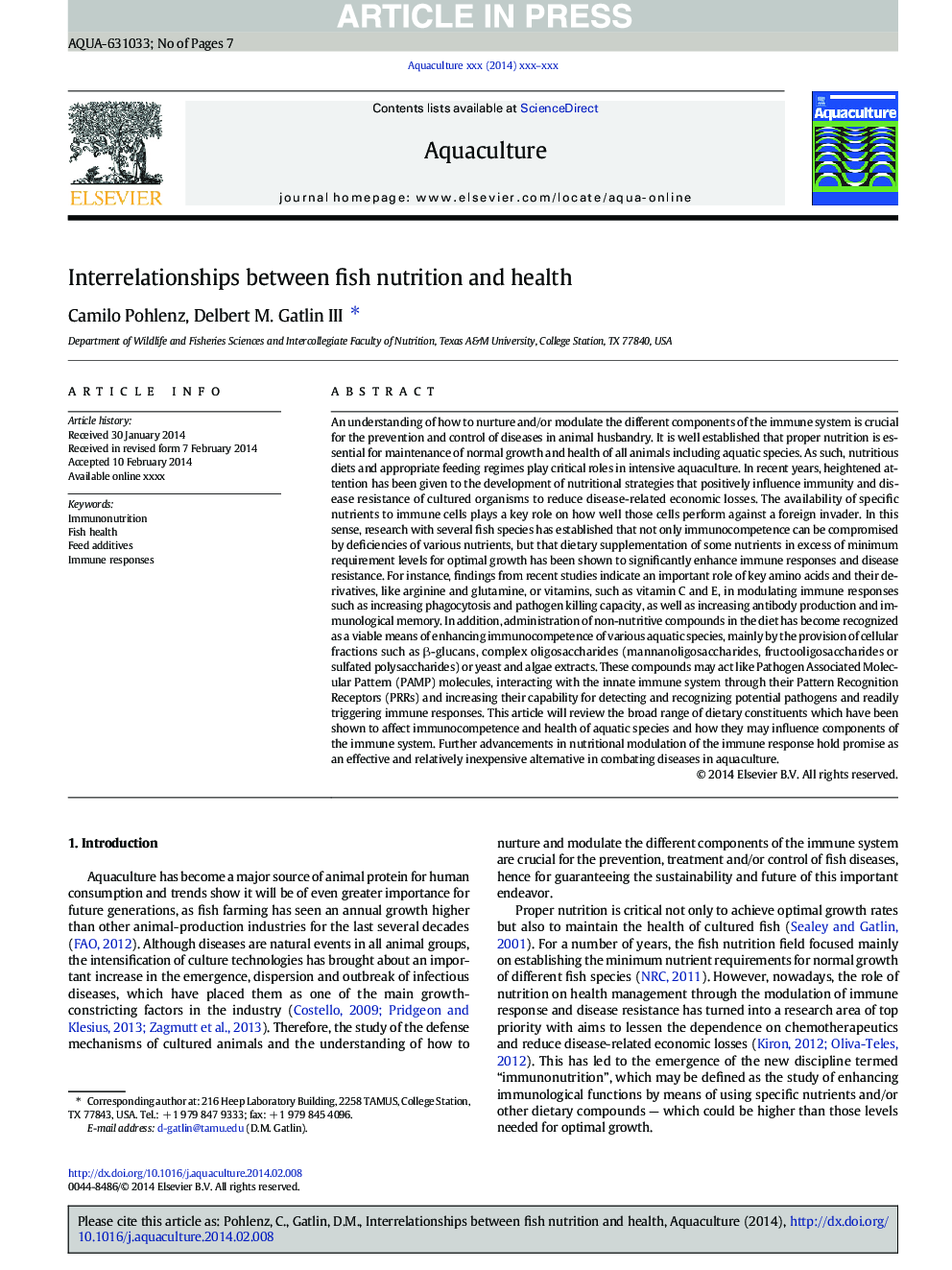| کد مقاله | کد نشریه | سال انتشار | مقاله انگلیسی | نسخه تمام متن |
|---|---|---|---|---|
| 8495018 | 1552856 | 2014 | 7 صفحه PDF | دانلود رایگان |
عنوان انگلیسی مقاله ISI
Interrelationships between fish nutrition and health
ترجمه فارسی عنوان
رابطه بین تغذیه ماهی و سلامت
دانلود مقاله + سفارش ترجمه
دانلود مقاله ISI انگلیسی
رایگان برای ایرانیان
کلمات کلیدی
ایمنی سلامت ماهی، مواد افزودنی خوراکی، پاسخ ایمنی،
موضوعات مرتبط
علوم زیستی و بیوفناوری
علوم کشاورزی و بیولوژیک
علوم آبزیان
چکیده انگلیسی
An understanding of how to nurture and/or modulate the different components of the immune system is crucial for the prevention and control of diseases in animal husbandry. It is well established that proper nutrition is essential for maintenance of normal growth and health of all animals including aquatic species. As such, nutritious diets and appropriate feeding regimes play critical roles in intensive aquaculture. In recent years, heightened attention has been given to the development of nutritional strategies that positively influence immunity and disease resistance of cultured organisms to reduce disease-related economic losses. The availability of specific nutrients to immune cells plays a key role on how well those cells perform against a foreign invader. In this sense, research with several fish species has established that not only immunocompetence can be compromised by deficiencies of various nutrients, but that dietary supplementation of some nutrients in excess of minimum requirement levels for optimal growth has been shown to significantly enhance immune responses and disease resistance. For instance, findings from recent studies indicate an important role of key amino acids and their derivatives, like arginine and glutamine, or vitamins, such as vitamin C and E, in modulating immune responses such as increasing phagocytosis and pathogen killing capacity, as well as increasing antibody production and immunological memory. In addition, administration of non-nutritive compounds in the diet has become recognized as a viable means of enhancing immunocompetence of various aquatic species, mainly by the provision of cellular fractions such as β-glucans, complex oligosaccharides (mannanoligosaccharides, fructooligosaccharides or sulfated polysaccharides) or yeast and algae extracts. These compounds may act like Pathogen Associated Molecular Pattern (PAMP) molecules, interacting with the innate immune system through their Pattern Recognition Receptors (PRRs) and increasing their capability for detecting and recognizing potential pathogens and readily triggering immune responses. This article will review the broad range of dietary constituents which have been shown to affect immunocompetence and health of aquatic species and how they may influence components of the immune system. Further advancements in nutritional modulation of the immune response hold promise as an effective and relatively inexpensive alternative in combating diseases in aquaculture.
ناشر
Database: Elsevier - ScienceDirect (ساینس دایرکت)
Journal: Aquaculture - Volume 431, 20 July 2014, Pages 111-117
Journal: Aquaculture - Volume 431, 20 July 2014, Pages 111-117
نویسندگان
Camilo Pohlenz, Delbert M. III,
